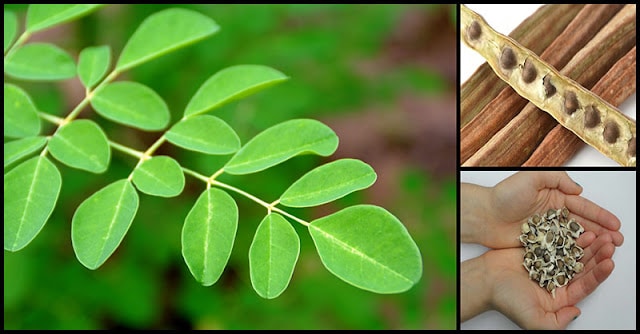Also known as the “wonderful tree” in Asia and Africa, Moringa Oleifera is used in traditional medicine to cure several diseases, including cancer. However, there is still much to learn about the effectiveness and cytotoxic properties – this pertains to “quality of being toxic to cancer cells” – of Moringa Oleifera seeds on MCF7 which is commonly known as breast cancer cells.
Fortunately, after intensive studies, a group of researchers coming from Malaysia has proven the “anti-proliferative effect” – pertains to the ability to prevent the spread of cancer cells – of M. Oleifera seeds on MCF7.
In other countries, they used herbal medicine as an alternative remedy to cure and prevent many diseases like diabetes, malaria, cancer, and microbial infections. Over the centuries, herbal medicine has proven to be effective, affordable, and easily prepared.
Other names for Moringa Oleifera include horseradish tree, drumstick tree, and Malunggay. The tree’s pods, leaves, and seeds contain numerous beneficial phytochemicals like flavonoids, glycosides, alkaloids, phenolics, vitamins, sterols, amino acids, and minerals.
The seeds of M. Oleifera tree has a diuretic effect and antimicrobial and antitumor properties. Earlier studies also presented a comprehensive result of the cytotoxic effect of the ethanolic extract of Moringa Oleifera root on melanoma and leukemia cell lines.
According to this study, the researchers focused on the effect of the cytotoxic activity of Malunggay seeds in inhibiting the spread of MCF7 cells. MCF7 cell is an estrogen positive breast cancer cell that is commonly used as “in vitro” model in most breast cancer therapeutic research.
While there are many chemotherapy treatments that can suppress breast cancer growth, their side effects are linked to a weakened immune system, neutropenia – an abnormally low level of neutrophils – hypercalcemia or having an abnormally high amount of calcium levels in the blood, and possible metastasis to other body parts.
The researchers from Malaysia collected M. Oleifera seeds from Herbagus, a town in Kepala Batas in Penang, Malaysia. They then used the fractions and extracts from the seeds to gauge the cytotoxicity to breast adenocarcinoma cells or MCF7 and normal breast cells (MCF10A).
The seeds were ground to powder and the phytochemicals present were extracted using water and 80% ethanol solvents. Part of the extract was partitioned chronologically into fractions with four solvents, such as dichloromethane (DF-CEE), n-butanol (nBF-CEE), chloroform (CF-CEE), and hexane (HF-CEE). After thorough investigations, the anti-proliferative effects of the samples on breast cancer cells were determined.
The researchers specifically noted the fact that the potent samples of Moringa seeds “significantly inhibited MCF7 growth” after it was tested on MCF10A. According to the researchers, the mode of extraction of compounds is through the use of water because of its universal solubility with polar compounds, ethanol, on the other hand, was used also because of its higher solubility and its ability to extract and yield relevant compounds as observed in previous studies done in Moringa tree.
In conclusion, the researchers said that out of the samples that were tested, HF-CEE had an anti-proliferative effect on MCF7 breast cancer cells without being toxic to normal breast cells.
Other Wonderful Facts About Moringa Oleifera
Being rich in nutrients, Moringa Oleifera has been proven to deliver numerous health benefits aside from combating cancer.
- Moringa can be used to address inflammatory conditions because of its anti-inflammatory properties.
- It is packed with 90 different beneficial nutrients.
- It has 50 times more vitamin B3 than peanuts.
- Has 36 times more magnesium than eggs.
- Boasts 25 times more iron than spinach.
- Has 4 times more calcium than milk.
- Moringa leaves are high in protein, containing around 46 essential antioxidants and at least 18 amino acids.
Moringa Oleifera is a common plant that grows just around our backyard. Make sure to take advantage of the nutrients it can offer by adding it into your diet.









